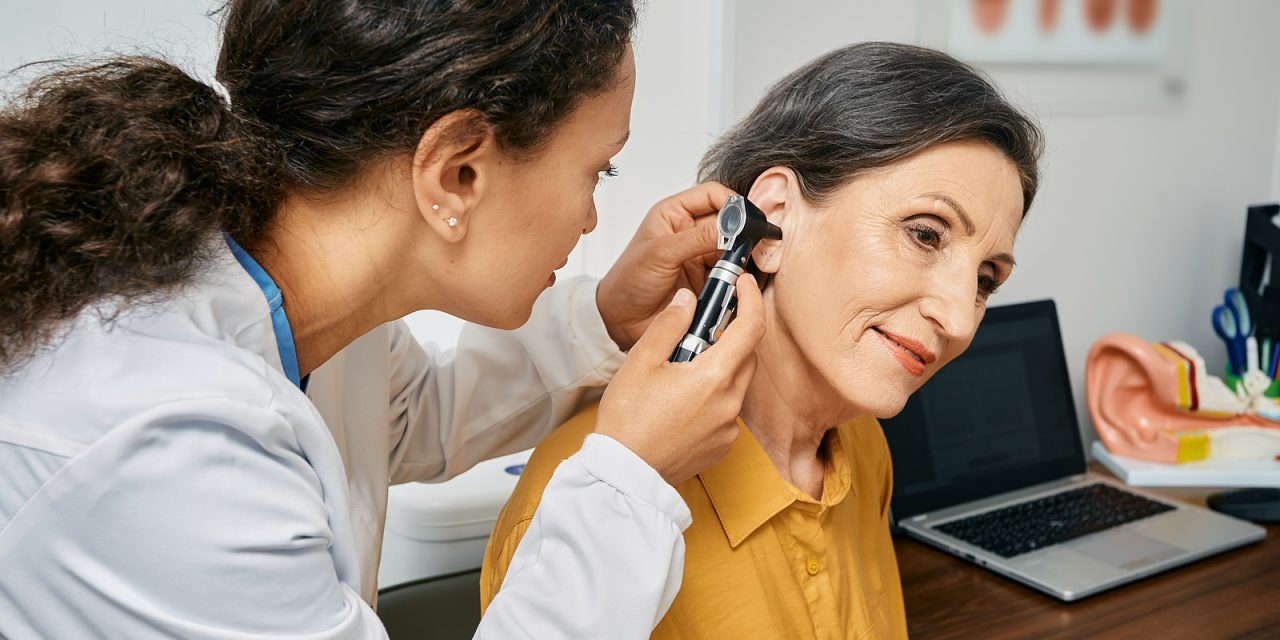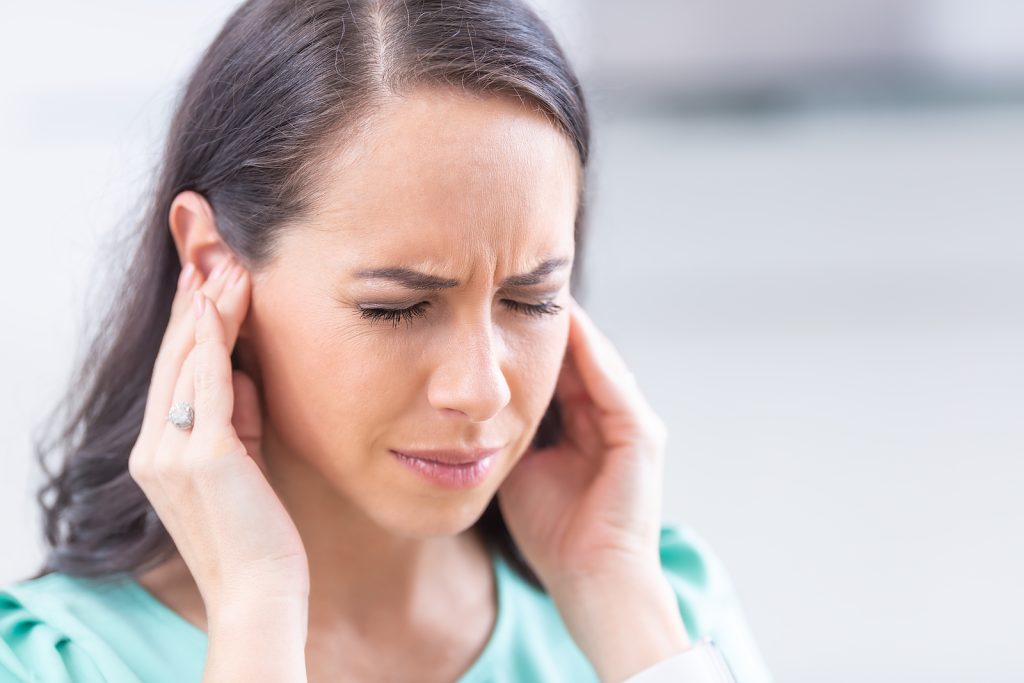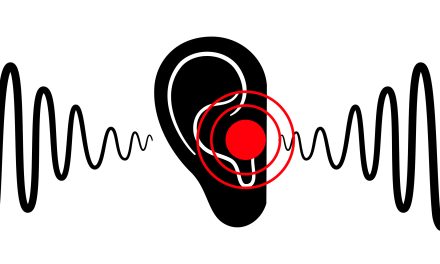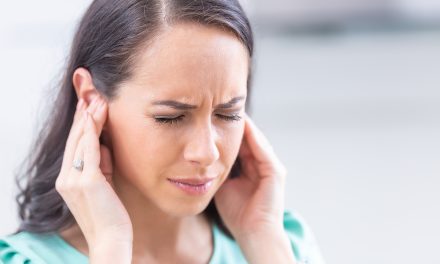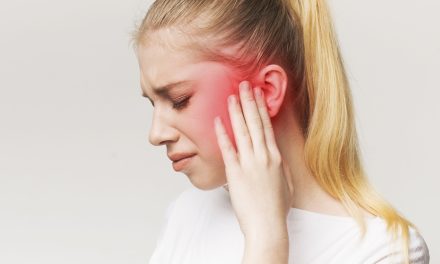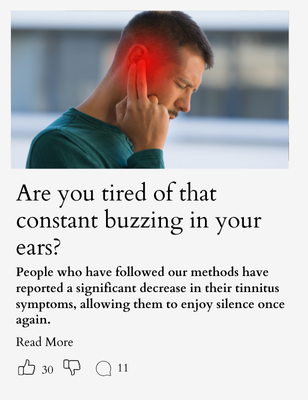Tinnitus, a persistent ringing or buzzing in the ears, is a condition affecting millions of people worldwide. Although there is no definitive cure for tinnitus, various natural approaches can help alleviate its symptoms. In this article, we will explore different strategies to help naturally manage tinnitus, including lifestyle adjustments, sound therapy, and psychological techniques.
Understanding the root cause of tinnitus is crucial, as it may be linked to underlying health issues such as hearing loss, ear infections, or exposure to loud noises. By addressing these potential triggers, one can improve their overall ear health and reduce the impact of tinnitus on their daily lives. Moreover, adopting stress management techniques, proper nutrition, and regular exercise can contribute to a more holistic approach to managing this condition.
Key Takeaways
- Natural remedies like lifestyle adjustments and sound therapy can help manage tinnitus symptoms.
- Discovering the underlying cause of tinnitus is critical for choosing the most suitable treatment strategy.
- Holistic approaches, including proper nutrition and stress management, can contribute to overall ear health and tinnitus management.
Understanding Tinnitus
Tinnitus is a common health problem that affects millions of people worldwide. It is characterized by a ringing, buzzing, or hissing sound in the ears, which can significantly impact a person’s quality of life. This section will help you better understand tinnitus, its causes, types, and symptoms.
Causes of Tinnitus
Tinnitus can be caused by several factors, such as:
- Exposure to loud noise: Prolonged exposure to loud noise is a significant risk factor in developing tinnitus. This includes listening to loud music, using machinery, or attending concerts and sporting events without proper ear protection.
- Age-related hearing loss: As we age, our hearing ability may deteriorate, leading to tinnitus.
- Stress: High-stress levels may exacerbate tinnitus symptoms, making them more noticeable and difficult to manage.
- Ear disorders: Tinnitus may be an early sign of an underlying ear disorder, such as Meniere’s disease, otosclerosis, or acoustic neuroma (a non-cancerous tumor).
- Medications: Certain medications, like aspirin, anti-inflammatory drugs, or specific antibiotics, can cause temporary tinnitus as a side effect.
Types of Tinnitus
Tinnitus can be categorized as either subjective or objective tinnitus.
- Subjective Tinnitus: This is the most common form of tinnitus, where only the person experiencing the symptoms can hear the ringing, buzzing, or hissing sound. Subjective tinnitus is usually caused by issues within the auditory system, such as exposure to loud noise or age-related hearing loss.
- Objective Tinnitus: This form of tinnitus can be heard by both the person experiencing it and medical professionals during an examination. Objective tinnitus often results from blood vessel abnormalities, muscle spasms, or issues with the bones in the middle ear.
| Type of Tinnitus | Description | Causes |
|---|---|---|
| Subjective | Can only be heard by the individual experiencing it | Auditory system issues, loud noise exposure, age-related hearing loss |
| Objective | Can be heard by both the individual and professionals during an examination | Blood vessel abnormalities, muscle spasms, issues with middle ear bones |
Symptoms of Tinnitus
Tinnitus symptoms can manifest as various types of sounds, such as:
- Ringing
- Buzzing
- Hissing
- Roaring
- Humming
The severity of tinnitus symptoms may vary from person to person and even change throughout the day. Some individuals will only experience mild symptoms, while others may deal with debilitating noise that affects their daily lives.
In conclusion, understanding the causes, types, and symptoms of tinnitus can help individuals recognize their condition and seek appropriate help in managing their symptoms. Keep in mind that it’s always important to consult a healthcare professional if you suspect that you may be suffering from tinnitus.
Natural Treatment Strategies
Herbal Supplements
One of the common natural remedies for tinnitus is the use of herbal supplements. Ginkgo biloba is a popular herbal supplement believed to improve tinnitus symptoms by increasing blood circulation in the inner ear. However, its effectiveness has not been conclusively proven. Other herbs, such as zinc, have also been linked to potential relief, but research remains limited.
Dietary Changes
Incorporating certain foods and dietary changes into your daily routine may help alleviate tinnitus symptoms. Anti-inflammatory foods, such as berries, pineapple, and avocados, can potentially reduce inflammation which could benefit the affected auditory nerves. It is also recommended to reduce the intake of alcohol, aspirin, and salt, as they can exacerbate tinnitus. Maintaining a balanced diet and staying properly hydrated are essential for overall ear health.
Exercise and Physical Activity
Engaging in regular exercise and physical activities such as yoga could provide relief for tinnitus sufferers. Exercise can help reduce stress and anxiety, which are common triggers for tinnitus symptoms. Moreover, yoga and meditation have been known to help manage tinnitus by promoting relaxation and improving blood flow. In addition, tinnitus retraining can be a useful technique that focuses on retraining the brain to ignore the ringing sounds caused by tinnitus.
Lifestyle Adjustments
Stress Management
Managing stress is a crucial step in reducing the symptoms of tinnitus. High-stress levels can exacerbate the perception of ringing in the ears. Incorporating relaxation techniques such as mindfulness meditation, deep breathing exercises, and progressive muscle relaxation into daily routines can be beneficial. For example, practicing mindfulness meditation for 10-15 minutes each day can help individuals become more aware of their stress levels and better manage their responses to stressors.
Sleep Enhancement
Adequate sleep plays a vital role in reducing fatigue and managing tinnitus symptoms. Establishing a regular sleep schedule and creating a sleep-friendly environment can help enhance sleep quality. Some strategies to promote better sleep include:
- Limiting exposure to screens and artificial light before bedtime
- Keeping the bedroom cool, dark, and quiet
- Using a white noise machine or a fan to drown out tinnitus sounds while falling asleep
- Incorporating relaxation methods such as deep breathing or meditation before bedtime
Environmental Modifications
Creating a quiet and peaceful environment can help minimize the impact of tinnitus on daily life. Some effective environmental modifications include:
- Using sound machines or bedside sound generators to mask tinnitus sounds during the day and at night
- Decorating spaces with soft materials like curtains, carpets, and cushions to help absorb sound
- Avoiding complete silence, as this can make tinnitus more noticeable – instead, opt for gentle background music or soothing natural sounds
By making these lifestyle adjustments, individuals experiencing tinnitus can alleviate some of their discomfort and better manage their symptoms.
Sound Therapy and Masking
Sound therapy and masking are two common methods used to alleviate tinnitus symptoms. These techniques involve introducing external sounds to help shift the brain’s focus away from the annoying ringing, buzzing, or hissing associated with tinnitus. This section will discuss the benefits of sound therapy, white noise applications, and tinnitus masking devices.
White Noise Applications
White noise applications produce a continuous, uniform sound that covers a wide frequency range, making it an effective tool for masking tinnitus. These applications can be accessed on smartphones, tablets, or computers, providing users with easy access to adjustable white noise settings. In addition to white noise, some applications offer other forms of sound therapy, such as pink noise, which has more energy in the lower frequencies and may be more soothing for certain individuals.
Many of those suffering from tinnitus have found relief when using these applications, as they can help to drown out the tinnitus and enable better concentration, relaxation, and sleep. |Harvard Health suggests employing customizable background noises, such as nature sounds or ambient noises, as alternatives or supplements to white noise.
Tinnitus Masking Devices
Tinnitus masking devices are specialized tools designed to help individuals cope with their tinnitus symptoms. They may resemble hearing aids and usually focus on personalizing the sound therapy experience. These devices can provide a customized sound environment tailored to the individual’s tinnitus frequency, making the masking process more effective.
According to the American Tinnitus Association, sound therapy can significantly suppress tinnitus in some individuals, and considering factors such as the user’s hearing loss helps to optimize the results. Moreover, tinnitus masking devices can be adjusted by audiologists, ensuring the best masking output for the individual user.
In conclusion, sound therapy and masking effectively alleviate tinnitus symptoms by introducing external sounds that divert the brain’s focus away from the irritating tinnitus noises. Users have access to various options, such as white noise applications and tinnitus masking devices, to find the most suitable and efficient method to manage their condition.
Psychological Approaches
There are various psychological approaches that can be helpful for individuals suffering from tinnitus. These methods focus on addressing the emotional and mental aspects of tinnitus, which can often exacerbate the condition. In this section, we will discuss two main approaches: Cognitive Behavioral Therapy and Mindfulness and Relaxation Therapies.
Cognitive Behavioral Therapy
Cognitive Behavioral Therapy (CBT) is a widely used therapeutic approach that aims to help individuals better understand and manage their thoughts, emotions, and behaviors. For tinnitus sufferers, CBT can help reduce the distress and anxiety associated with the condition by teaching them to reframe negative thoughts and adopt coping strategies.
CBT typically involves:
- Identifying and challenging negative thought patterns
- Developing coping strategies to deal with stress, depression, and anxiety
- Implementing relaxation techniques, such as deep breathing or progressive muscle relaxation
Mindfulness and Relaxation Therapies
Mindfulness-based therapies and relaxation techniques can also be effective in managing tinnitus symptoms. These approaches teach individuals to accept their experience of tinnitus without judgment or resistance, allowing them to reduce the impact of tinnitus on their emotional well-being.
Some mindfulness and relaxation practices include:
- Meditation: Focusing on the breath or a specific word or phrase can help individuals develop a sense of awareness and acceptance around their tinnitus.
- Progressive Muscle Relaxation: This method involves systematically tensing and then relaxing different muscle groups, aiming to bring about a state of deep relaxation.
- Deep Breathing: Slow, deep breaths can help activate the body’s relaxation response and lower stress levels.
Incorporating these psychological approaches into an overall treatment plan can significantly improve the quality of life for those coping with tinnitus. It is important to remember that each individual’s experience with tinnitus is unique, and the effectiveness of these therapies may vary from person to person.
Hearing Enhancement
Hearing Aids and Amplification
One of the most effective ways to manage tinnitus and improve one’s overall hearing is through hearing aids. These electronic devices provide a boost in sound, enabling people with hearing loss to hear better and communicate more effectively. They can also help alleviate tinnitus symptoms by amplifying external sounds to make the internal noises less noticeable.
Moreover, there are hearing aids powered by Bose, offering an advanced and user-friendly solution.
- Types of Hearing Aids:
- Behind-the-ear (BTE)
- In-the-ear (ITE)
- In-the-canal (ITC)
- Completely-in-the-canal (CIC)
It is essential to consider that exposure to loud noises can lead to hearing loss, which can exacerbate tinnitus symptoms. Therefore, it is crucial to protect your ears from loud sounds by wearing earplugs or earmuffs in noisy environments and keeping the volume safe when listening to music or watching movies.
In addition to hearing aids, some people find other ways to ease tinnitus symptoms by practicing relaxation techniques like meditation, yoga, deep breathing exercises, or engaging in activities that help to distract them from the distracting noise.
In conclusion, if you suffer from tinnitus or hearing loss, exploring various options to enhance your hearing and manage your symptoms is important. Always consult with a medical professional to determine the most suitable approach for you.
Professional and Medical Consultation
When to See a Doctor
While natural remedies may provide some relief for tinnitus, it is essential to consult with a medical professional to determine the underlying cause of the condition. A doctor is equipped to diagnose the root of the tinnitus and may recommend specific treatments, such as medications or even surgery, to address the issue more effectively.
There are a few situations when reaching out to a doctor for tinnitus concerns becomes crucial:
- Sudden onset or worsening: If tinnitus arises suddenly or worsens significantly, it could signify a more serious underlying condition. In these cases, prompt evaluation by a medical professional is necessary.
- Persistent symptoms: For those experiencing chronic tinnitus, a visit to the doctor can help ascertain whether the persistent symptoms are a result of an underlying cause that may require treatment. Causes can range from impacted earwax to medications or more severe issues like Meniere’s disease.
- Impaired hearing: Tinnitus accompanied by hearing loss or changes in the quality of sound may indicate damage to the inner ear or auditory nerve. A doctor can assess these changes and provide guidance on appropriate treatments, such as hearing aids or cochlear implants.
During the medical consultation, be prepared to discuss the following aspects of your tinnitus:
- Symptoms: Describe the type of sound, intensity, frequency, and specific situations when the tinnitus is most pronounced.
- Medications: Inform the doctor of any prescribed or over-the-counter medications currently being taken, as some drugs can contribute to or worsen tinnitus.
- Medical history: Share pertinent medical history, including past illnesses, surgeries, or trauma experienced by the ears or head.
In conclusion, although natural remedies can be helpful for managing tinnitus, obtaining a professional and medical consultation is essential for identifying the underlying cause and receiving the most appropriate treatment.
Alternative Medicine Approaches
Acupuncture and Pressure Points
Acupuncture is a traditional Chinese medicine technique that involves inserting thin needles into specific points on the body to stimulate energy flow and alleviate symptoms like tinnitus. Some studies suggest that acupuncture can help in reducing tinnitus symptoms, although more research is needed to confirm its effectiveness.
Pressure points are another approach based on Chinese medicine, where pressure is applied to specific points on the body to stimulate energy flow and alleviate symptoms. While there is limited scientific evidence for the effectiveness of pressure point therapy for tinnitus, it is worth exploring if you are seeking a more natural approach to symptom management.
Holistic Therapies
In addition to acupuncture and pressure points, several holistic therapies are believed to help manage tinnitus symptoms.
- Meditation: Practicing meditation can help people cope with the psychological impact of tinnitus, such as stress and anxiety, and improve overall well-being. Meditation is often recommended as a way to promote relaxation and reduce stress, which can potentially alleviate the intensity of tinnitus symptoms.
- Yoga: Yoga, a practice that combines physical postures, breathing exercises, and meditation, is sometimes recommended as a complementary treatment for tinnitus. Incorporating yoga into your daily routine may help improve your overall well-being, reduce stress, and possibly lessen the impact of tinnitus symptoms.
- Herbal Supplements: Some herbal supplements are said to mitigate tinnitus symptoms, such as Ginkgo biloba, zinc, and magnesium. However, it is essential to consult your healthcare professional before starting any supplement regimen, as they may interact with other medications, and their effectiveness in treating tinnitus has not been confirmed by extensive research.
Always consult a healthcare professional before trying any alternative medicine approaches to ensure they are safe and suitable for your specific needs. While the effectiveness of alternative treatments for tinnitus varies among individuals, exploring these options may offer relief for some individuals seeking more natural approaches to managing their symptoms.
Prevention Tips
Protecting Against Noise-Induced Damage
One of the primary causes of tinnitus is exposure to loud noises, which can lead to noise-induced hearing loss. To prevent tinnitus caused by this factor, it is essential to protect your ears from loud noises. Here are some helpful strategies:
- Limit exposure: Try to avoid or minimize exposure to loud noises whenever possible. For instance, if you work in a noisy environment, take breaks and give your ears some relief.
- Use protective gear: Wear earmuffs or earplugs when you are in situations where you cannot avoid loud sounds, such as concerts or construction sites.
- Turn down the volume: Listening to music or other audio at high volume can also contribute to tinnitus. Make sure you use earbuds or headphones at a moderate volume level, and take breaks if you listen for extended periods.
Ear Care and Hygiene
Another reason people may develop tinnitus is earwax blockage. Proper ear care and hygiene can help prevent this issue and reduce the risk of developing tinnitus.
- Regular cleaning: Clean your ears gently and regularly to remove excess earwax. It is crucial to avoid using cotton swabs or other objects to clean the ear canal, as this can push earwax deeper and cause blockages.
- Avoiding excessive moisture: Keep your ears dry by using a towel to gently dry them after swimming or bathing. Excessive moisture can make it more challenging for earwax to exit the ear canal, leading to blockages.
- Seek professional help: If you suspect a buildup or blockage of earwax, consult a healthcare professional who can safely remove the blockage and help prevent further complications.
Understanding the Impact
Coping with Chronic Conditions
Chronic tinnitus can be difficult to manage, leading to negative impacts on the individual’s quality of life. It is not uncommon for those suffering from chronic tinnitus to experience depression and anxiety due to the constant ringing or buzzing in their ears. Therefore, it is imperative to find coping mechanisms and strategies for managing the condition.
Some effective coping strategies for dealing with tinnitus include:
- Cognitive-behavioral therapy (CBT): This therapy can help individuals understand and change their perception of tinnitus, reducing its impact on their lives.
- Relaxation techniques: Practices like yoga, meditation, and deep breathing exercises can help to alleviate stress and anxiety that may exacerbate tinnitus symptoms.
- Sound therapy: Using white noise machines, soothing music, or other background sounds can help mask or reduce the perception of tinnitus, making it easier to cope with.
Social and Emotional Considerations
The social and emotional aspects of living with tinnitus should not be underestimated. Isolation and withdrawal from social situations can be common among individuals dealing with the condition, as they may feel self-conscious about their symptoms or struggle to communicate in noisy environments. It is essential for those suffering from tinnitus to maintain a support network, whether it’s friends, family, or joining a support group specifically for people with tinnitus.
Engaging in social activities and open communication about the challenges faced by someone with tinnitus can help to reduce feelings of isolation and encourage a more positive outlook. Moreover, understanding the impact of tinnitus on a person’s mental health can motivate them to seek professional help or implement self-care practices that promote mental well-being.
In conclusion, managing the social and emotional aspects of one’s life while dealing with chronic tinnitus is key to overall well-being. Finding ways to cope with the condition, remaining socially active, and being proactive about mental health can greatly reduce the negative impact of tinnitus on one’s quality of life.
Frequently Asked Questions
What are the top natural remedies to alleviate tinnitus symptoms?
There are several natural remedies that may help alleviate tinnitus symptoms. Some popular options include herbal supplements, yoga, acupuncture, and meditation. It’s important to note that the effectiveness of these remedies varies for each individual, and more research is needed to determine their overall effectiveness.
Which vitamins and supplements are known to potentially reduce tinnitus discomfort?
Some vitamins and supplements, such as ginkgo biloba and zinc, have been suggested to potentially reduce tinnitus discomfort. However, it’s important to consult with a healthcare professional before starting any new supplement regimen, as research on their safety and effectiveness is limited.
Are there any effective lifestyle changes that can help manage tinnitus naturally?
Yes, certain lifestyle changes may help manage tinnitus naturally. Reducing caffeine and alcohol intake, managing stress, and practicing relaxation techniques such as deep breathing exercises, might provide relief from tinnitus symptoms. Engaging in regular physical activity and maintaining a healthy sleep schedule can also help promote overall well-being and reduce discomfort.
Can certain ear drops provide relief from tinnitus, and which ones are recommended?
There is limited evidence suggesting that some ear drops may provide tinnitus relief. However, the effectiveness of ear drops for tinnitus varies among individuals, and it’s best to consult with a healthcare professional for personalized recommendations.
What strategies can be employed to minimize tinnitus noise during the night?
To minimize tinnitus noise during the night, playing soothing sounds or white noise in the background can be helpful. Using sound therapy devices or smartphone applications that play calming sounds can mask the tinnitus noise and promote relaxation, making it easier to fall asleep.
Is it possible for tinnitus to resolve on its own and what factors may contribute to this?
In some cases, tinnitus may resolve on its own, especially if it is caused by a temporary condition such as an ear infection or exposure to loud noise. However, the likelihood of tinnitus resolving on its own depends on the underlying cause and individual factors. Early diagnosis and treatment by a healthcare professional can increase the chances of successful management and potentially reduce the duration of tinnitus symptoms.

